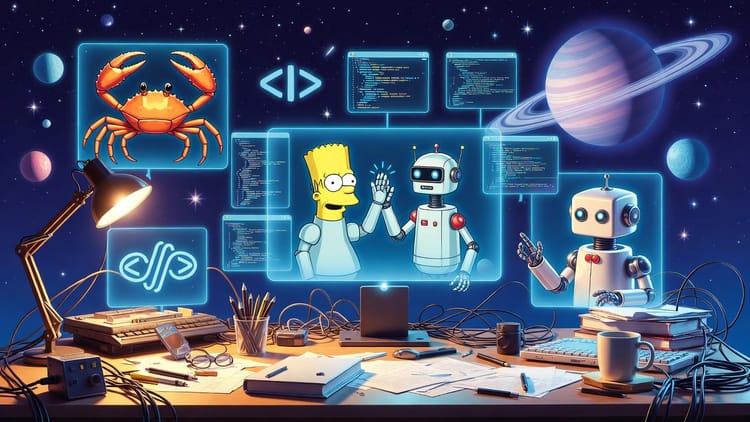Exploring Mozilla.ai: Open-Source Tools Revolutionizing Trustworthy AI Development

In a world where AI is everywhere—from chatbots that write your emails to algorithms that curate your social feeds—there's a growing unease. Who controls these systems? Are they transparent, or are we just feeding data into black boxes owned by tech giants? Enter Mozilla.ai, the innovative arm of Mozilla that's flipping the script on AI development. Building on Mozilla's decades-long fight for an open web, Mozilla.ai is dedicated to making AI trustworthy, accessible, and fully open-source. No more proprietary lock-ins; instead, tools that empower developers to build AI that's ethical, collaborative, and actually useful.
Why does this matter? Well, as AI infiltrates everything from healthcare to entertainment, the need for open alternatives has never been greater. Closed-source AI can hide biases, stifle innovation, and concentrate power in a few hands. Mozilla.ai counters this by providing developer-focused tools that prioritize transparency and community input. In this post, we'll dive deep into Mozilla.ai's features, spotlight their flagship projects like any-agent, Lumigator, and Blueprints, and explore how they're fostering a more equitable AI ecosystem.
Whether you're a seasoned engineer tinkering with large language models or a newbie dipping your toes into AI integration, Mozilla.ai's offerings lower the barriers to entry. We'll break down the tech step-by-step, peek at real-world examples, and even touch on how you can contribute. By the end, you'll see why Mozilla.ai isn't just another AI initiative—it's a movement toward AI that serves humanity, not just shareholders. Let's unpack this cosmic quest for better AI, shall we? (After all, in the universe of tech, Mozilla.ai is like that witty sidekick reminding us that openness is key to exploration.)
The Mozilla.ai Mission: Trustworthy AI for All
Mozilla.ai isn't starting from scratch; it's an extension of Mozilla's legacy, the folks behind Firefox who championed open standards against internet monopolies. Launched as a startup within Mozilla, Mozilla.ai focuses on building a "trustworthy and open-source AI ecosystem with agency, accountability, and openness at its core." Their core philosophy? AI should be a public good, not a proprietary weapon.
At its heart, Mozilla.ai addresses key pain points in the AI landscape:
- Transparency: Many AI models are opaque, making it hard to audit for biases or errors.
- Accessibility: High barriers to entry, like expensive compute or complex setups, exclude smaller developers.
- Interoperability: Tools from different sources often don't play nice together.
To tackle these, Mozilla.ai emphasizes open-source principles, community collaboration, and practical tools. As Mark Surman, Mozilla's President, puts it in interviews, open-source AI can drive economic growth and position countries competitively without relying on closed systems. This values-first approach echoes Mozilla's broader efforts, like their whitepaper on accelerating trustworthy AI, which outlines strategies to mainstream open-source generative AI.
In practice, this means creating tools that developers can use, modify, and share freely. Let's look at their standout projects.
Key Projects: Hands-On Tools for AI Innovation
Mozilla.ai's projects are designed for real-world use, bridging the gap between raw AI models and deployable applications. Here's a breakdown of the big three: any-agent, Lumigator, and Blueprints.
any-agent: Streamlining AI Agent Frameworks
Imagine trying to build an AI agent—like a virtual assistant that books flights or summarizes reports—but getting bogged down by incompatible frameworks. any-agent solves this by providing a unified interface for multiple agent frameworks, making it easier to build, test, and switch between them.
Key Features:
- Supports frameworks like Agno, Google ADK, LangChain, LlamaIndex, OpenAI Agents SDK, Smolagents, and TinyAgent.
- Standardized tracing following GenAI open telemetry standards for consistent evaluation.
- Built-in support for Agent2Agent (A2A) setups, allowing agents to communicate seamlessly.
- "Trace-first" evaluation to compare setups and debug failures.
How does it work? You configure your agent once, then swap frameworks via simple config changes—no code rewrites needed. For example, their surf spot finder demo uses any-agent to integrate location data and recommendations into a cohesive agent.
To get a feel, here's a hypothetical Python snippet based on their GitHub repo (adapt as needed):
# Example: Setting up any-agent with LangChain
from any_agent import AgentInterface
config = {
'framework': 'langchain',
'model': 'gpt-3.5-turbo', # Or any open-source alternative
'tools': ['search', 'calculator']
}
agent = AgentInterface(config)
response = agent.run("Find the best surf spots near San Francisco.")
print(response)
This abstraction layer saves hours of integration work, perfect for prototyping multi-agent systems.
Lumigator: Demystifying AI Model Evaluation
Selecting the right AI model is like picking a spaceship for interstellar travel—you need reliability, efficiency, and no hidden flaws. Lumigator is Mozilla.ai's tool for evaluating, refining, and choosing models without needing a PhD in ML.
Key Features:
- Transparent insights into performance, bias, and reliability.
- Easy navigation for beginners and pros alike.
- Iterative refinement to optimize for specific use cases.
It works by providing a user-friendly interface to test models against your project's needs. While specific examples aren't detailed in their docs, think of it as a dashboard where you input datasets, run benchmarks, and get visual reports on metrics like accuracy or fairness.
For instance, if you're building a sentiment analysis app, Lumigator could compare models like BERT vs. smaller open-source alternatives, highlighting trade-offs in speed vs. precision.
Community feedback drives its evolution—check their GitHub for contributions.
Blueprints: Customizable Workflows for Rapid Prototyping
Open-source AI is powerful but chaotic; Blueprints tames it by offering pre-built, customizable workflows that integrate trusted tools and models.
Key Features:
- Ready-to-use templates that run locally or in the cloud.
- Customizable elements like models, prompts, and components.
- Continuous updates to incorporate the latest open-source advancements.
- Hosted on GitHub for easy forking and extension.
Launched with workflows like Document-to-Podcast (which turns docs into multi-speaker audio podcasts, inspired by NotebookLM), Blueprints address integration headaches. The hub at blueprints.mozilla.ai features demos, videos, and five initial blueprints.
How to use: Clone a repo, tweak the config, and run. For Document-to-Podcast:
- Clone:
git clone https://github.com/mozilla-ai/document-to-podcast - Install dependencies (e.g., via pip).
- Run: Provide a document, select voices, and generate audio.
Benefits? It cuts prototyping time, ensures trustworthiness, and fosters mindshare among developers.
| Project | Focus | Ideal For | GitHub Repo |
|---|---|---|---|
| any-agent | Agent frameworks unification | Building multi-agent systems | https://github.com/mozilla-ai/any-agent |
| Lumigator | Model evaluation | Selecting and optimizing models | https://github.com/mozilla-ai/lumigator |
| Blueprints | Workflow templates | Rapid AI app prototyping | Various, e.g., https://github.com/mozilla-ai/document-to-podcast |
Community and Open-Source Ethos
Mozilla.ai thrives on collaboration. They're not just building tools; they're inviting developers to co-create. Contribute via GitHub pull requests, feedback on issues, or even building your own Blueprints using their template. Careers are open for those passionate about trustworthy AI.
This community-driven model mirrors broader open-source AI efforts, like those discussed in OSI's resources. Real-world impact? Think localized apps that respect cultural nuances, free from big tech's biases.
Humorously, if AI were a band, Mozilla.ai would be the punk rockers advocating for DIY ethics—because who wants corporate pop controlling the playlist?
Integration with Broader Mozilla Ecosystem
While Mozilla.ai stands alone, it ties into Mozilla's AI experiments, like Firefox's sidebar chatbots or Nightly's AI features for link previews. This synergy hints at a future where open AI enhances everyday browsing.
Policy-wise, Mozilla pushes for regulations supporting open AI, creating a "public counterpoint" to private initiatives.
Challenges and xAI's Perspective
Open-source AI isn't easy—updates break things, and resources lag. But that's where Mozilla.ai shines, aligning with xAI's curiosity-driven exploration of the universe. Both emphasize openness to unlock AI's potential, reminding us that true innovation comes from shared knowledge, not silos.
Conclusion
Mozilla.ai is reshaping AI development by putting power back in developers' hands through tools like any-agent, Lumigator, and Blueprints. Key takeaways: Prioritize transparency, embrace community, and start small with their accessible workflows. Whether you're prototyping a podcast generator or evaluating models for bias, these open-source gems make it feasible.
Next steps? Head to mozilla.ai, clone a repo, and experiment. Dive into their blog for updates, or join the conversation on GitHub. What's your take—will open AI eclipse closed systems? Build something and share it. After all, in the grand mystery of the universe, collaborative AI might just be our best tool for discovery.


